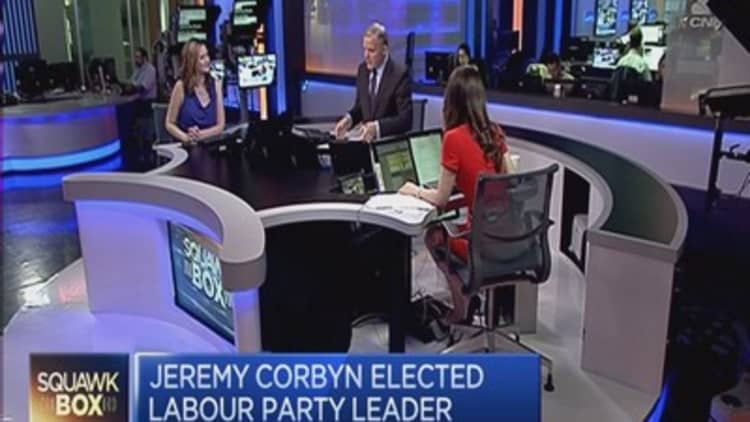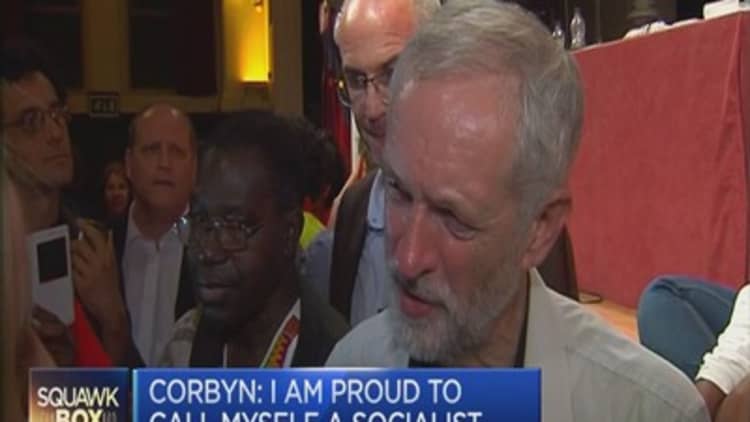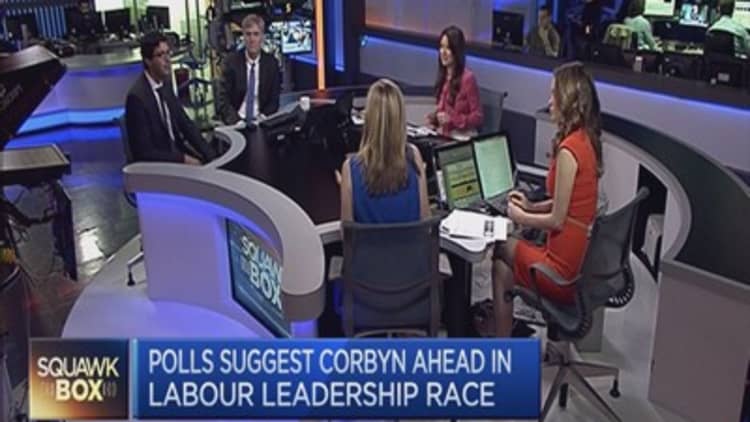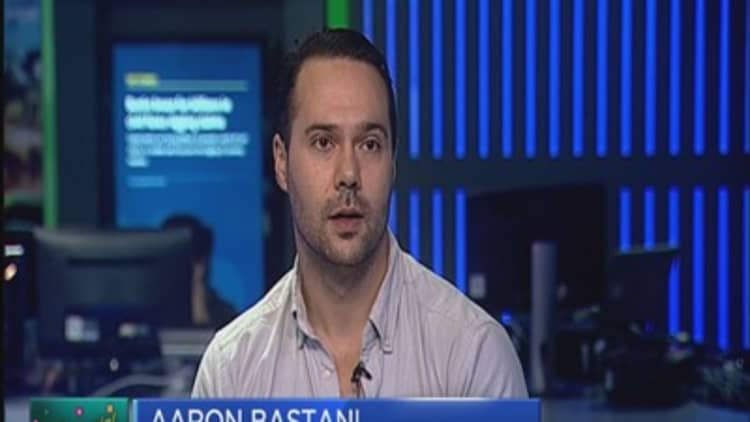



Jeremy Corbyn has become the U.K. Labour Party's new leader - and its most socialist for decades.
Corbyn's astonishing rise — from 200/1 rank outsider who could barely scrape together enough support from his fellow MPs to be nominated, to securing 59,5b percent of his party's vote — has baffled his party and much of the country.
Does his triumph suggest a new left-leaning mood in the U.K.? Possibly not. There is a gloomy feeling among Labour supporters from the party's more centrist camp that Corbyn is unlikely to win many votes outside the party or compel non-voters back to the ballot box.
With very little support from his party's MPs - some of those who nominated him have admitted they actually back other candidates - the U.K. media are already speculating about when, not if, the first coup attempt may happen.
Bin Laden 'tragedy'
One of the first places Corbyn could face attack is on his foreign policies. He is head of the pacifist Stop the War coalition and voted against U.K. military involvement in both Iraq and Afghanistan. One of his most controversial comments came when he called Osama Bin Laden's death at the hands of the U.S. "yet another tragedy" in the war on terror.
There is some important context for this statement - Corbyn, who also added that the World Trade Center attack was a tragedy, followed with the assertion that the Al Qaeda leader should have been put on trial rather than shot. Still, with the deteriorating situation in the Middle East and increasing calls for more U.K. military intervention in Syria as the refugee crisis in Europe continues, the suggestion of sympathy with Islamic extremism may not play well with the U.K. public.
'People's QE'
Corbyn wants to see what he calls "people's quantitative easing" to deliver large infrastructure projects via a National Investment Bank, instead of the bond-buying on a massive scale employed by the Bank of England in the past six years.
In this, he is in agreement with some well-known economists. However, there are also concerns that his ideas may impact the Bank of England's valued independence.
Some of his other ideas – such as renationalizing the U.K.'s railways, re-examining the incentives given to companies to invest in the U.K., and garnering a greater tax take from big companies, have raised more eyebrows.
The latest, a retrospective windfall tax on U.K. state assets which were privatized, some of them decades ago, could discourage investment in the U.K. if it ever looked like becoming law.
European left-wing rises
Corbyn, like the equally tie-phobic former Greek finance minister Yanis Varoufakis, has come from obscurity to closer to the seat of power than he may have ever thought possible, partly because of a wave of disaffection with centrist politics throughout Europe that has increased support for left-wing leaders. Syriza in Greece, Podemos in Spain, and now a more left-wing Labour Party in the U.K., appear to be part of a transcontinental move.
The unassuming, principled MP's appeal to younger left-leaning voters is marked. He appears to be someone who has never compromised on his views on everything from cycling to claiming expenses.
Yet, like Syriza's leader Tsipras, he may find that he has to compromise if he wants to win elections.
- By CNBC's Catherine Boyle



